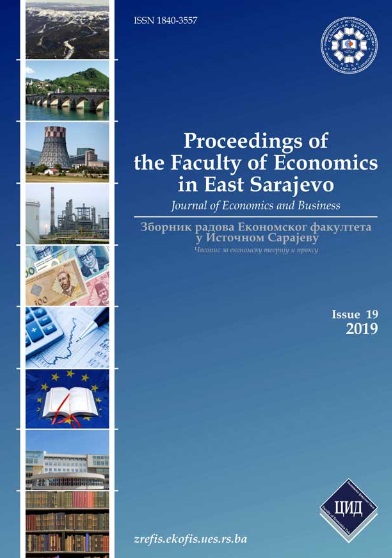MACROECONOMIC STABILITY OF NEW MEMBER STATES OF THE EUROPEAN UNION: FIFTH ENLARGEMENT
DOI:
https://doi.org/10.7251/ZREFIS1919055RAbstract
The historical context of globalization as an organized process, which influenced the majority of national economies linked via international institutional mediators, led to the so called regional economic integration phenomenon. It is interpreted as the efforts of underdeveloped and developing countries to speed up their economic growth and more significantly impact the entire macroeconomic stability by means of some form of regional integration. Nowadays, regional economic integration is one of the pillars for proper functioning of modern economic relations. Experience of developed countries serves as an example to point out that integration processes inevitably contribute to more favorable environment for developing business sector in the countries striving for integration. In the context of global integrations, more frequent forms of regional changes and the establishment of trade blocks come as the consequence as well as the overall need for obtaining trade balance among national economies. Within this context, the European Union is seen as one of the most important regional integration and an imperative in economic, political and cultural segment, as it is the territory with significant economic growth and the region with high living standards.

